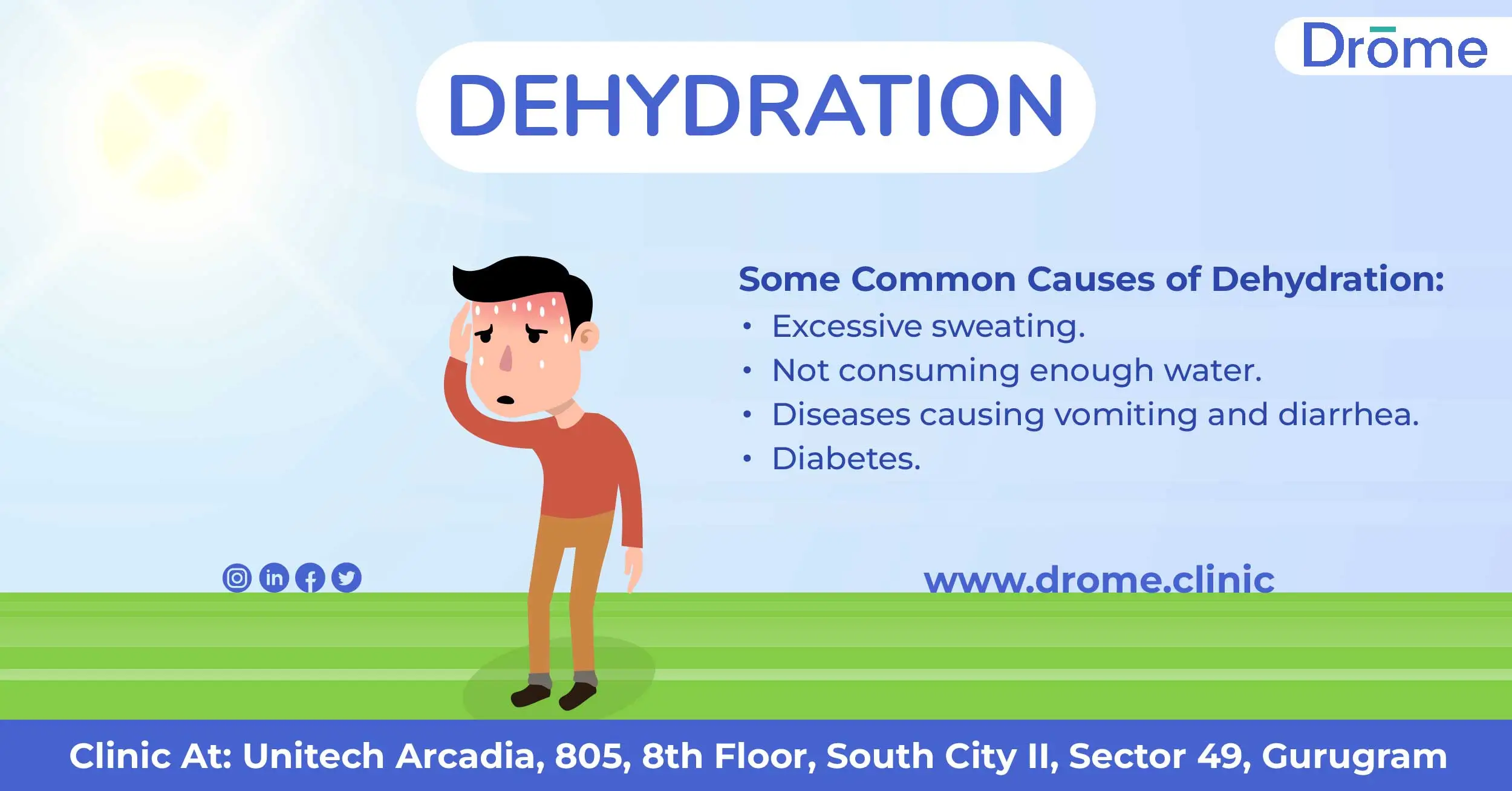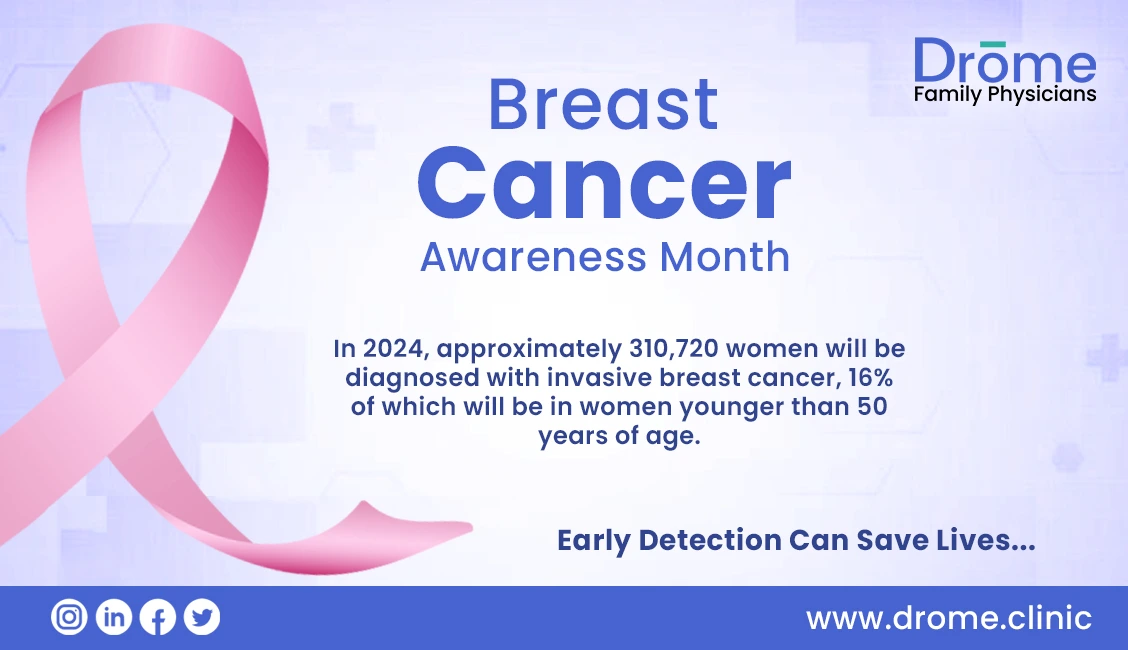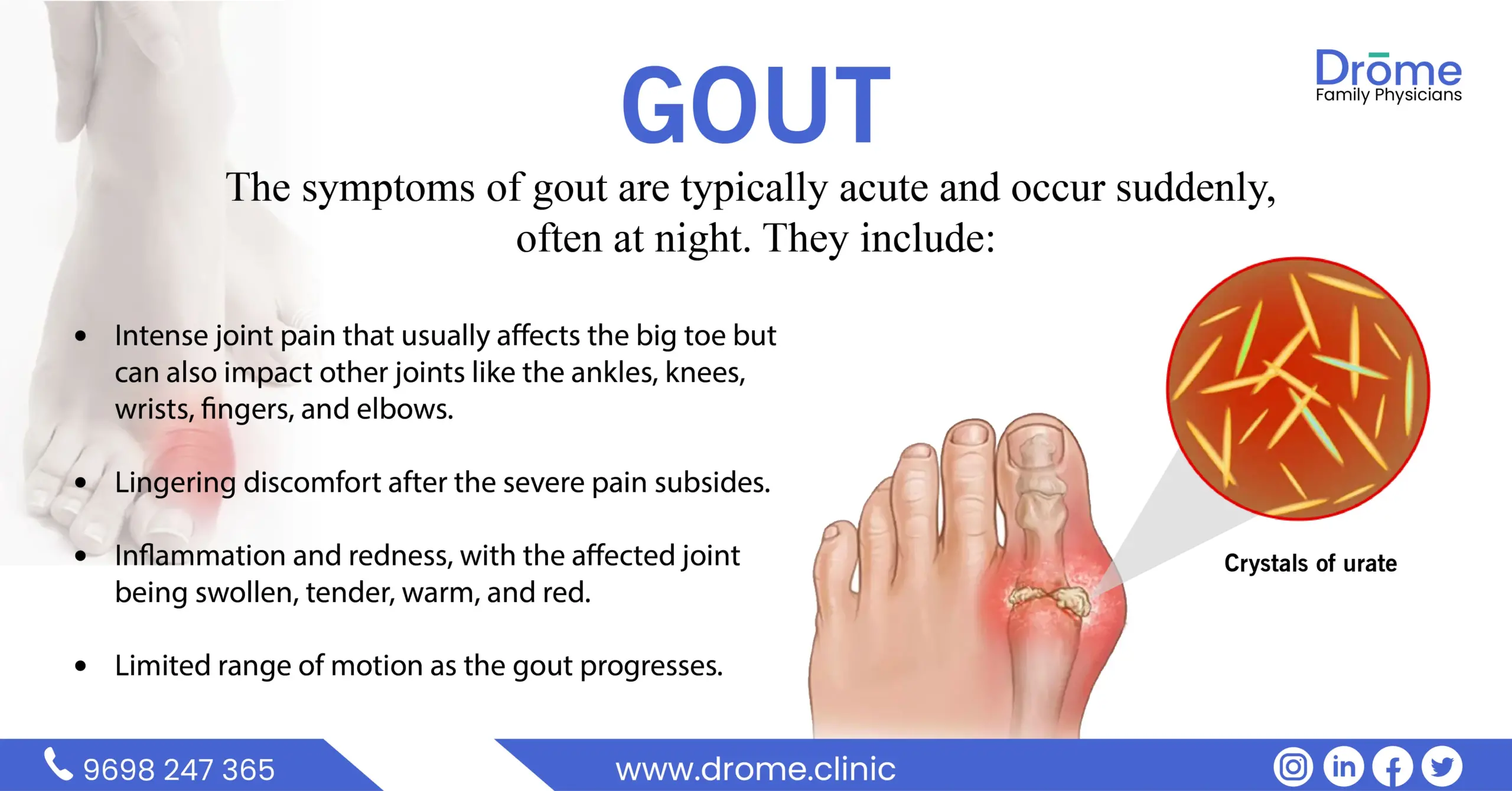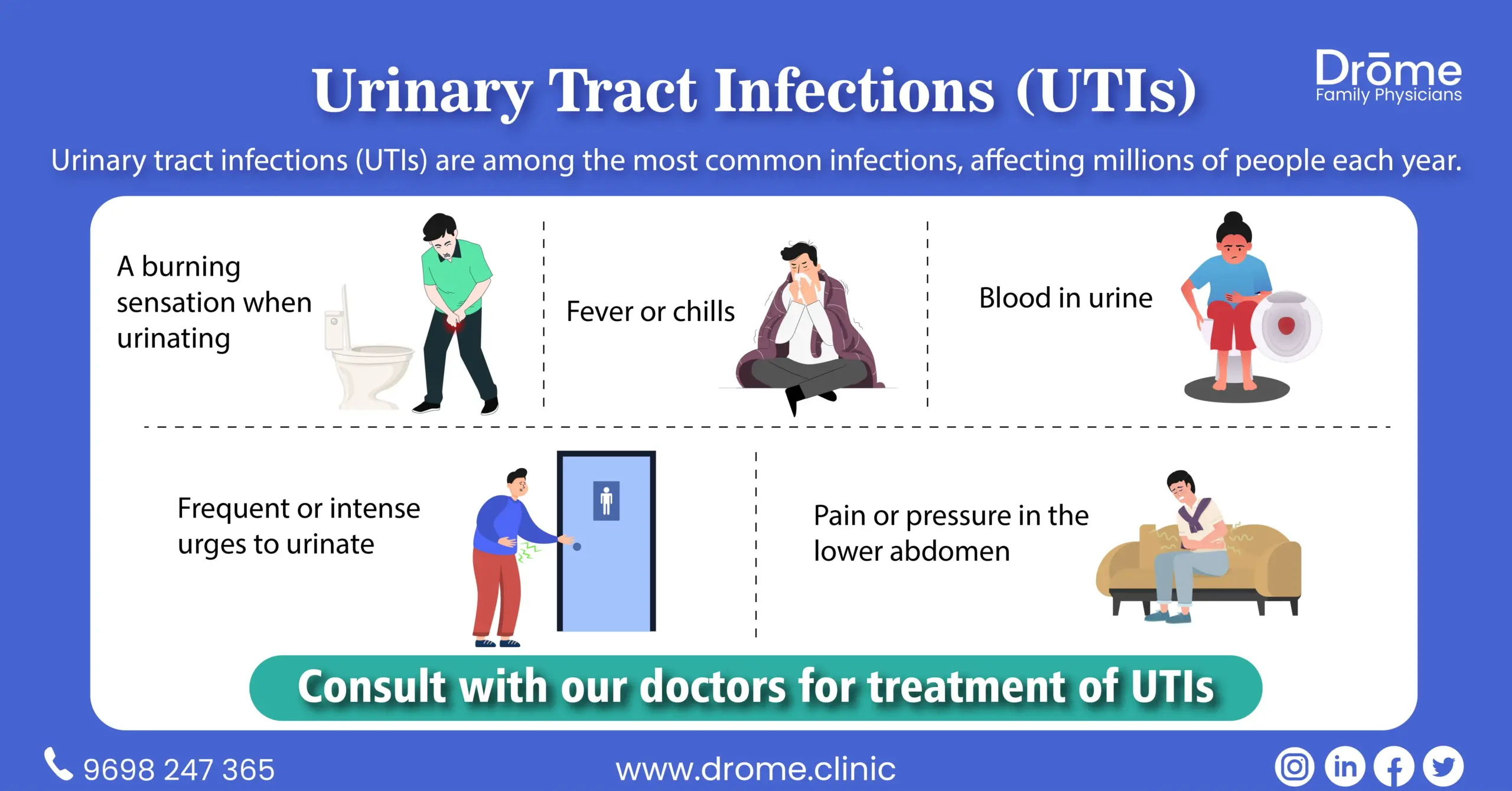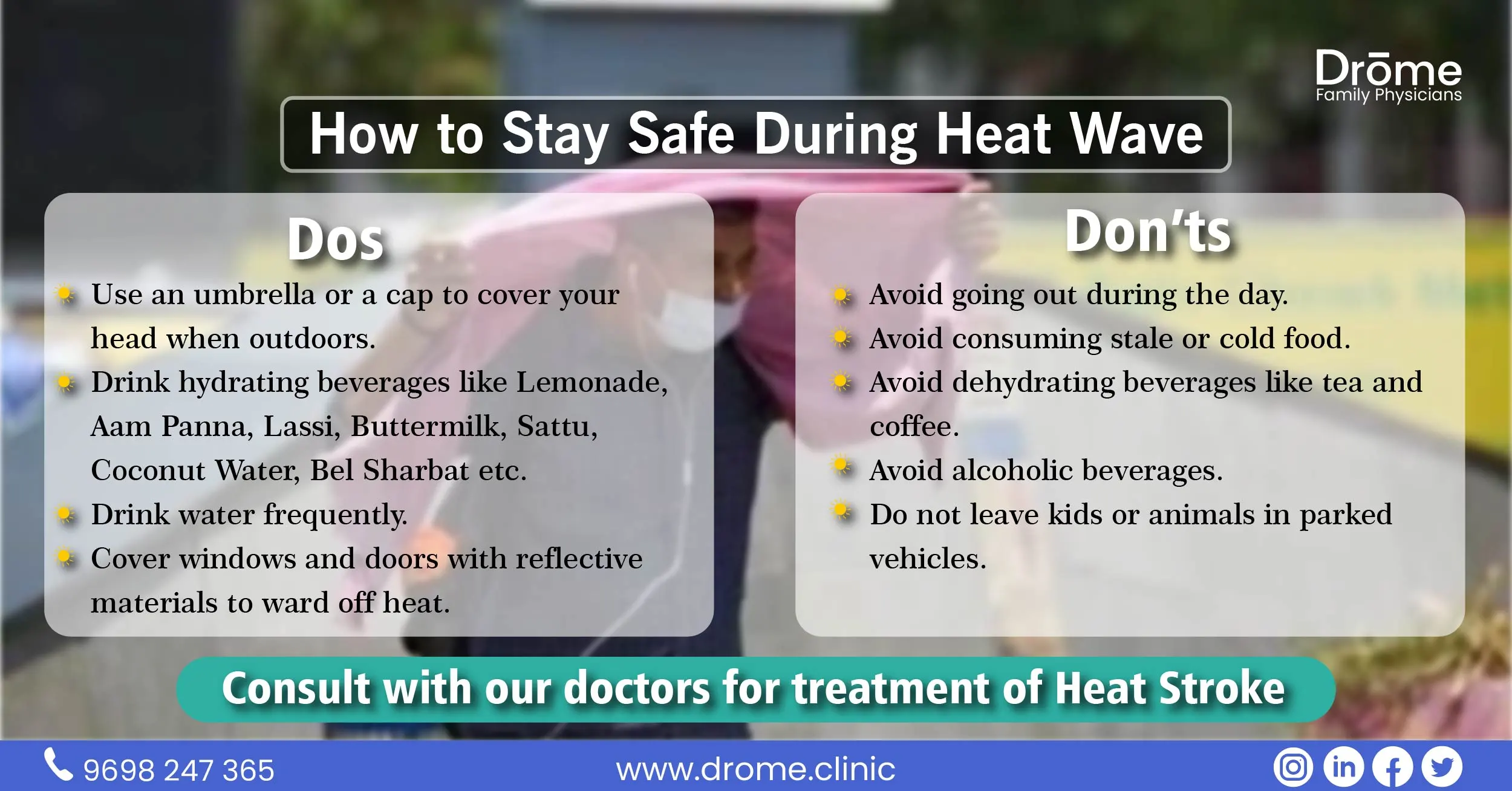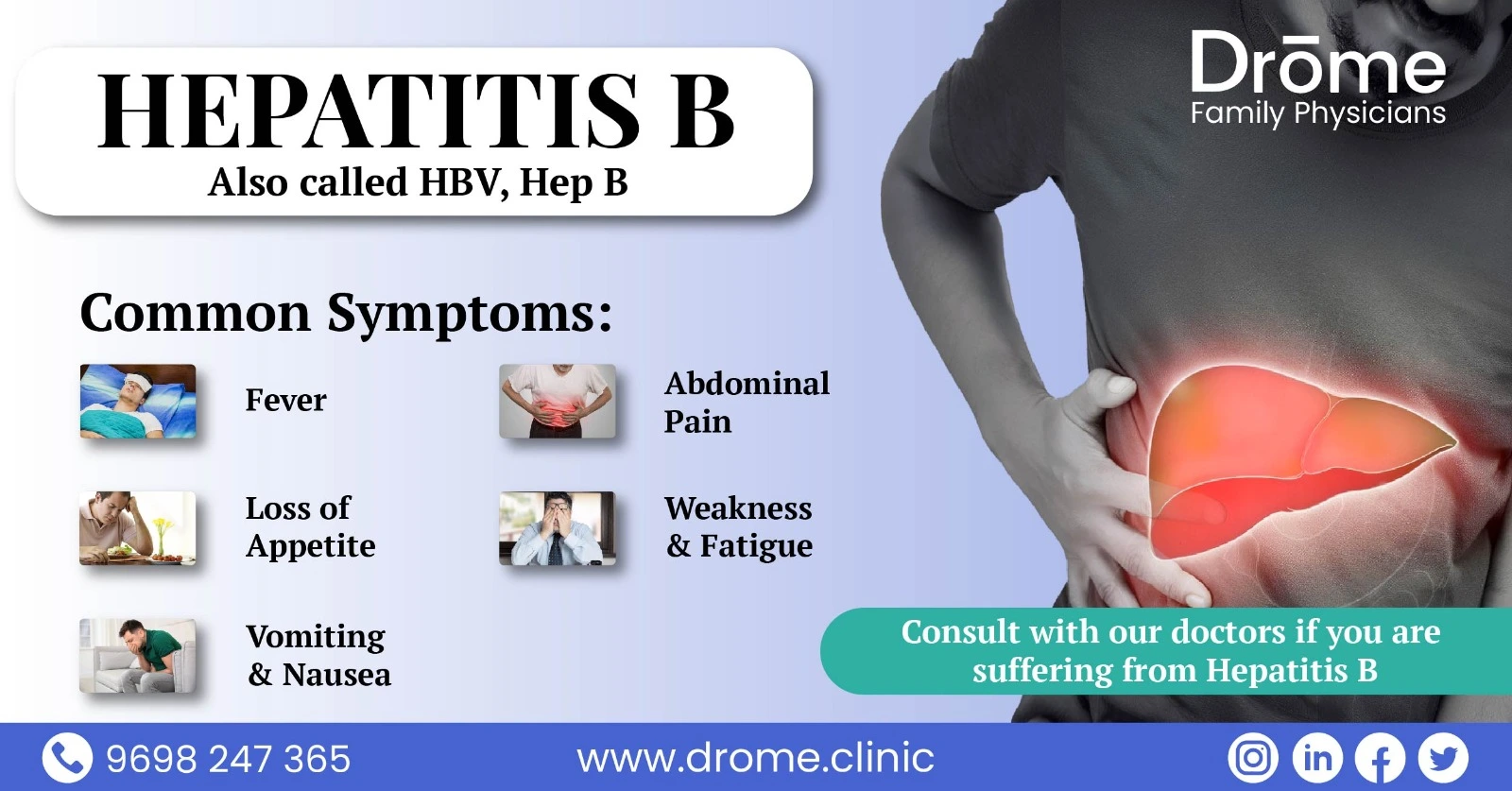Table of Contents
ToggleDehydration: Symptoms, Causes, and Prevention Tips
Introduction
In India’s diverse climatic conditions, dehydration remains a pervasive health concern, often underestimated in its potential impact. This blog aims to bring a deeper understanding of dehydration, its signs, treatment, and preventive measures, particularly relevant to the Indian populace.
Overview – Dehydration
Dehydration occurs when there is loss of more fluid than intake and the body doesn’t have enough water and other fluids to carry out its normal functions.
It’s particularly concerning in India due to factors like high temperatures and humidity.
Causes of dehydration
- Excessive sweating
- Not consuming enough water,
- Diseases causing vomiting and diarrhea,
- Diabetes
- Certain medications causing excessive urination
In India, bouts of gastroenteritis, heatwaves and inadequate water intake are significant contributors.
Risk Factors
Environmental: High temperatures and humid conditions in many parts of India.
Demographic: Children, the elderly, and people with chronic illnesses like diabetes are at higher risk.
Symptoms and signs
Signs of dehydration in kids include:
- Dry tongue and dry lips
- No tears when crying
- Sunken eyes
- Dry wrinkled skin
- Cool blotchy hands and feet
- Deep rapid breathing
Dehydration symptoms in adults may include:
- Headache, delirium and confusion
- Tiredness, fatigue
- Dizziness, weakness and lightheadedness
- Dry mouth
- High heart rate but low blood pressure
- Flushed red skin
- Muscle cramps
- Heat intolerance
- Dark-colored urine
Complications
Dehydration can lead to serious complications, including:
- Heat injury: It may range in severity from mild heat cramps to heat exhaustion or potentially life-threatening heatstroke.
- Urinary and kidney problems: Prolonged or repeated episodes of dehydration can cause urinary tract infections and kidney stones
- Seizures: Dehydration can lead to loss of electrolytes like potassium and sodium which can lead to involuntary muscle contractions and sometimes to a loss of consciousness.
- Low blood volume shock (hypovolemic shock): It is one of the serious complications of dehydration. It occurs when low blood volume causes a drop in blood pressure and a drop in the amount of oxygen in your body.
Diagnosis
Dehydration can be diagnosed by:
- Physical Examination: Observing physical signs of dehydration, such as reduced skin turgor (skin that doesn’t bounce back quickly when pinched and released).
- Urine Analysis: It can show the extent of dehydration
- Blood Tests: To check kidney function and electrolyte levels, especially in severe cases.
Treatment
Mild to Moderate Dehydration: Easily treated at home with oral rehydration solutions (ORS). Coconut water is a popular natural rehydrator, thanks to its electrolyte composition.
Severe Dehydration: Requires prompt medical attention where intravenous (IV) fluids are administered to rapidly restore hydration.
Prevention
- Consistent Hydration: Regular intake of fluids, particularly during hot weather or physical activity.
- Diet: Incorporating fruits and vegetables with high water content.
- Lifestyle Adjustments: wearing light clothing and increasing fluid intake when ill.
Conclusion
Dehydration, while preventable, poses a significant health risk, particularly in a country like India with its unique climatic and cultural landscape. Awareness and regular, proactive hydration are key to preventing dehydration, along with understanding when to seek medical help.
FAQs on Dehydration
How does dehydration affect children differently than adults?
Children are more susceptible to dehydration due to their smaller body size and higher turnover of water and electrolytes. They may not always recognize or communicate their thirst.
What are the long-term effects of repeated dehydration?
Chronic dehydration can lead to kidney stones, urinary tract infections, and in severe cases, kidney failure.
How can I ensure adequate hydration during Indian summers?
Increase your fluid intake, include traditional Indian summer drinks like buttermilk and lime water, and avoid direct sun exposure during peak hours.
Sourced from Mayo clinic and Cleveland clinic

